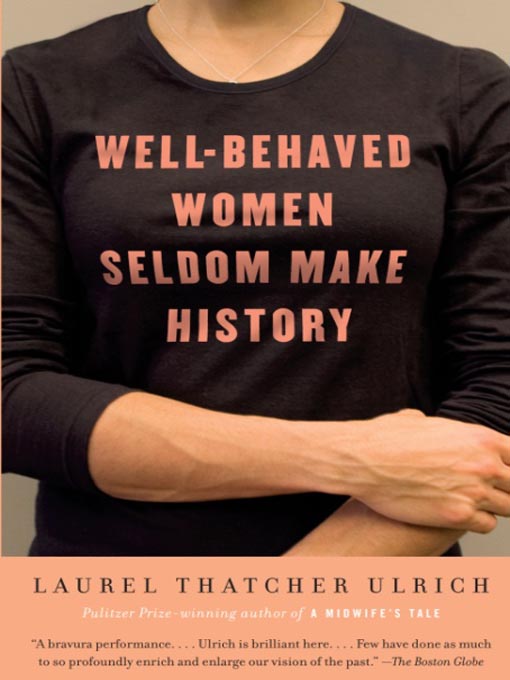From admired historian—and coiner of one of feminism's most popular slogans—Laurel Thatcher Ulrich comes an exploration of what it means for women to make history.
In 1976, in an obscure scholarly article, Ulrich wrote, "Well behaved women seldom make history." Today these words appear on t-shirts, mugs, bumper stickers, greeting cards, and all sorts of Web sites and blogs. Ulrich explains how that happened and what it means by looking back at women of the past who challenged the way history was written. She ranges from the fifteenth-century writer Christine de Pizan, who wrote The Book of the City of Ladies, to the twentieth century’s Virginia Woolf, author of A Room of One's Own. Ulrich updates their attempts to reimagine female possibilities and looks at the women who didn't try to make history but did. And she concludes by showing how the 1970s activists who created "second-wave feminism" also created a renaissance in the study of history.
- Available now
- New eBook additions
- New kids additions
- New teen additions
- Most popular
- Try something different
- Local History
- Project Gutenberg
- See all ebooks collections
- New audiobook additions
- Available now
- New kids additions
- New teen additions
- Most popular
- Try something different
- See all audiobooks collections

